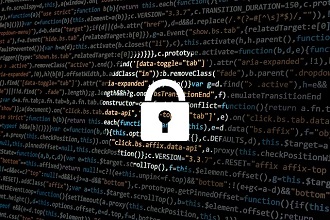 Identity theft is a serious problem that seems to be escalating. If you have been a victim of identity theft, then you know what I mean. It can be costly, time consuming and emotionally draining to get everything secured after an attack. Protecting your personal data is now more important than ever. Your personal identity information, or PII, can be taken from you in a variety of ways, from dumpster diving to computer hacking.
Identity theft is a serious problem that seems to be escalating. If you have been a victim of identity theft, then you know what I mean. It can be costly, time consuming and emotionally draining to get everything secured after an attack. Protecting your personal data is now more important than ever. Your personal identity information, or PII, can be taken from you in a variety of ways, from dumpster diving to computer hacking.
Another form of protection to consider is in the event of a weather emergency, or house fire. Some documents can be scanned and put on a computer, but other forms require the original document, such as a notarized birth certificate or passport. These documents are much more difficult to replace.
With these types of threats looming over us, what do we do to protect our data? The list below shows some simple steps to mitigate the risk of becoming a victim of identity theft.
Social security number – Your social security number is probably number one on the list that identity thieves want. Anyone that has this information can find out just about anything they want about you.
- Never carry your card with you, memorize it and keep it in a secure location such as a fireproof safe or safety deposit box at your bank.
- Don’t store it on your computer. Hackers know how to retrieve that information from your computer.
- Never provide it to service providers over the phone in a public place. Most service providers these days don’t ask for the full number, usually just the last 4 digits. Even so, try to make these calls in the privacy of your home; a safety measurement to prevent identity theft.
Discarding documents – Earlier in this post I mentioned dumpster diving as a means of obtaining personal information. This happens a lot these days. You need to be careful about what you put in the trash.
- Always shred documents with full or partial account numbers or other personal information, using a cross cut shredder. Thieves have been known to tape the strips together from the older models. This is actually the best way to discard documents that have personal information on them.
- Burning is another way to destroy these documents to prevent identity theft. Using a fireplace is recommended over burning them in a fire pit in your yard. The wind could carry bits of salvageable documents for a long way.
Computer storage – Backing up the files on your computer is highly recommended for a lot of reasons. The main one being, if your computer crashes, you can restore data easily. Also, if your computer is destroyed in a fire or flood, you can restore your data to the replacement.
- Online storage is becoming very popular to protect your data. There are several companies that provide this service for a minimal fee. The main benefit is that you can store and retrieve your data anywhere, anytime.
- External hard drives are another good way to back up your data. Do this on a regular basis and store the external hard drive in a fireproof safe or offsite such as in a safety deposit box at your bank.
What steps have you taken to protect your data?


